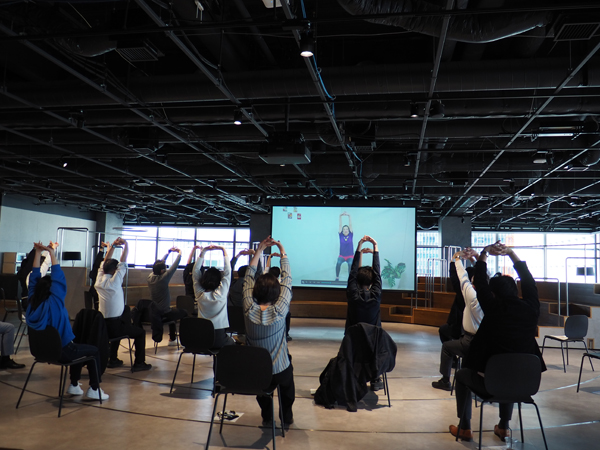Preventing Business Caregivers from Leaving Their Jobs NTT docomo business

NTT docomo business, in collaboration with Reborn Wellness and Sompo Care, is running the “Give the Gift of Health: Filial Piety: Ribbon de CoCo Project”.
This project targets “business caregivers” who provide care for family members while working. It promotes a comprehensive cognitive decline prevention program with the aim of reducing the burden of caring for family members and preventing people from leaving their jobs to care for them. The project combines care prevention with wellness. A trial is currently being conducted for NTT Docomo Business employees and their families.
According to the Ministry of Economy, Trade and Industry, there are currently approximately 3 million business caregivers in Japan, and 100,000 business caregivers are forced to leave their jobs each year.
The number of business caregivers is expected to increase to 3.18 million by 2030, raising concerns about a decline in performance, especially among female executives. This will also result in significant economic losses, estimated at 9.1792 trillion yen by 2030.
Akiyuki Yokoyama of the Smart Healthcare Promotion Office at NTT docomo business commented, “We believe this will be a major issue for NTT Group as well.”
According to the company’s calculations, the number of business caregivers in NTT Group will be approximately 9,200 by 2030, resulting in economic losses of 25.7 billion yen.
To avoid this situation, it is essential to identify business caregivers and potential business caregivers and to take proactive measures to address the issue.
Dementia is the leading cause of requiring care. Cognitive function gradually declines with age. As a result, symptoms are often subtle, and people often only notice them when they become severe.
To prevent dementia from worsening, it is important to identify the brain condition of elderly family members early and provide care to halt the decline in cognitive function.
Research into cognitive function is currently progressing, and it has been found that cognitive function can be improved by simultaneous intervention using multiple preventive content (FINGER study and J-MINT study).
In other words, early detection of dementia and appropriate dementia prevention measures can reduce the risk of needing care.
Communication between family members, such as parents and children and spouses, is key to preventing dementia from worsening and reducing the risk of needing care.
However, even family members can find it difficult to communicate with each other amid the hustle and bustle of work and child-rearing. This is especially true when parents and children live apart.
“In order to eliminate these bottlenecks, we believe it is important for a third party to provide a solution that firmly connects family members for communication,” says Yokoyama. Ribbon de CoCo Project was launched with this in mind.
The project involves understanding parents’ brain function through a “Brain Health Check” provided by NTT docomo business. Based on this, Sompo Care aims to maintain and improve cognitive function through a “Cognitive Decline Prevention Program.” Reborn Wellness will be responsible for awareness-raising activities such as improving communication between family members.
“If a company introduces this package and an employee signs up, the employee’s family members will be able to access the entire set of content. We would like to promote it as a solution to raise awareness of dementia and prevent cognitive decline. Currently, this is being run within NTT docomo business, but we will also be expanding the business into the market,” says Yokoyama.
※Translating Japanese articles into English with AI
